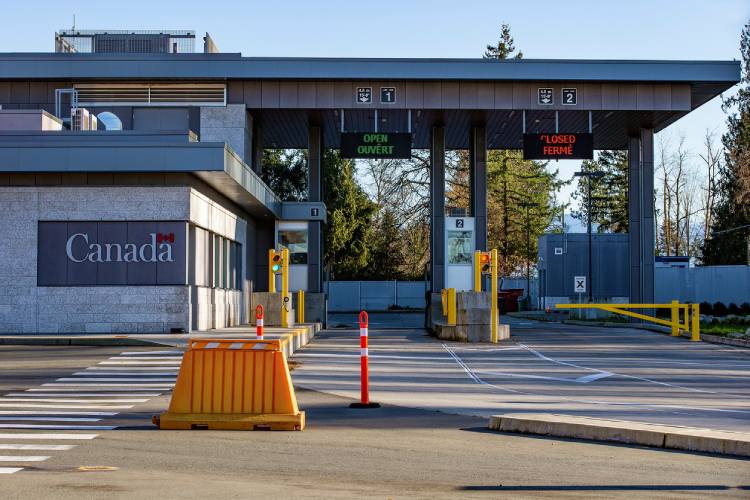If you’re a U.S. citizen with a DUI (Driving Under the Influence) conviction, you might find traveling or immigrating to Canada challenging due to strict criminal admissibility rules. However, legal avenues, such as applying for criminal rehabilitation or securing a Temporary Resident Permit (TRP), can help you overcome these hurdles. This blog will provide detailed, actionable advice on how to navigate this complex process.
1. Understanding Canadian DUI Entry Policies
Canada considers DUI offenses serious crimes. Under Canadian immigration law, a DUI can render a person inadmissible to enter the country. The law assesses inadmissibility based on whether an act outside of Canada would constitute an offense under Canadian law. Since December 2018, a DUI has been considered a severe crime in Canada, carrying a maximum sentence of up to 10 years, which can affect your admissibility.
2. Assessing Your Eligibility for Entry
To determine your admissibility to Canada, you must first understand the details of your DUI conviction:
- Date of the Offense: Recent offenses are treated more strictly.
- Severity and Nature of the Offense: Multiple DUIs or those involving damage, injury, or death are viewed more harshly.
- Completion of Sentence: Whether all fines, courses, community service and other sentencing requirements are completed.
If more than five years have passed since fulfilling your sentence and you have committed no other offenses, you may be eligible for criminal rehabilitation.
3. Preparing Your Application
Preparing your application involves gathering relevant documents that prove your eligibility and rehabilitation. Essential documents typically include:
- Police Records: Complete criminal history.
- Court Documents: Details of the conviction, including the sentence and completion of all imposed conditions.
- Reference Letters: Demonstrating good moral character and changes in lifestyle that reduce the likelihood of re-offense.
- Proof of Completion: Evidence of having fulfilled all legal sentences, including rehabilitation courses.
Organizing these documents meticulously is crucial for a successful application.
4. The Role of Rehabilitation
Rehabilitation plays a pivotal role in overcoming a DUI record when entering Canada. It involves demonstrating that you lead a stable lifestyle and that the likelihood of reoffending is low. Continuous employment, family ties, community involvement, and the absence of new criminal activity can support this.
5. Applying for Criminal Rehabilitation
To apply for criminal rehabilitation, you must:
- Complete the application forms provided by Immigration, Refugees and Citizenship Canada (IRCC).
- Gather supporting documents, including court documents, letters of reference, and any other documents that prove you have reformed.
- Write a personal statement explaining the circumstances of the DUI, what you learned from the experience, and how you’ve changed since.
- Apply with a processing fee—this can be done at a Canadian visa office or online.
The processing time can vary from several months to over a year, so applying well before your travel date is important.
6. Securing a Temporary Resident Permit
If you must travel to Canada before becoming eligible for criminal rehabilitation or while waiting for your rehabilitation application’s approval, you may apply for a Temporary Resident Permit (TRP). This permit allows you to stay in Canada for a specific period despite your inadmissibility. To apply for a TRP, you must:
- Demonstrate a significant reason for entering Canada, such as business commitments or family emergencies.
- Submit the same type of documentation required for a rehabilitation application, emphasizing why your visit is justified despite the criminal record.
7. Navigating the Application Process
Navigating the application process efficiently requires the following:
- Timely preparation: Start gathering documents and preparing your application well in advance.
- Attention to detail: Ensure all information is accurate and complete to avoid delays.
- Professional guidance: Consider consulting with an immigration lawyer to ensure your application meets all legal requirements and to improve your chances of success.
Conclusion
Understanding and navigating the legal process to enter Canada with a DUI conviction can be complex but manageable with proper preparation and guidance. You can enhance your chances of success by proving your rehabilitation and responsibly managing your application. No matter where you are located, the lawyers at Richards and Jurusik can assist you in re-entering Canada with DUIs and other convictions.
Schedule a Consultation with an Immigration Lawyer
Citations
We Can Help!
You may have questions regarding the impact of a DUI on your ability to travel to Canada as a U.S. citizen. We invite you to contact our team at Richards and Jurusik for detailed guidance and assistance. We aim to provide the most accurate and up-to-date information to make your immigration process smoother and less stressful. The immigration lawyers at Richards and Jurusik have decades of experience helping people to work and live in the United States. Read some of our hundreds of 5-star client reviews! Contact us today to assess your legal situation.







